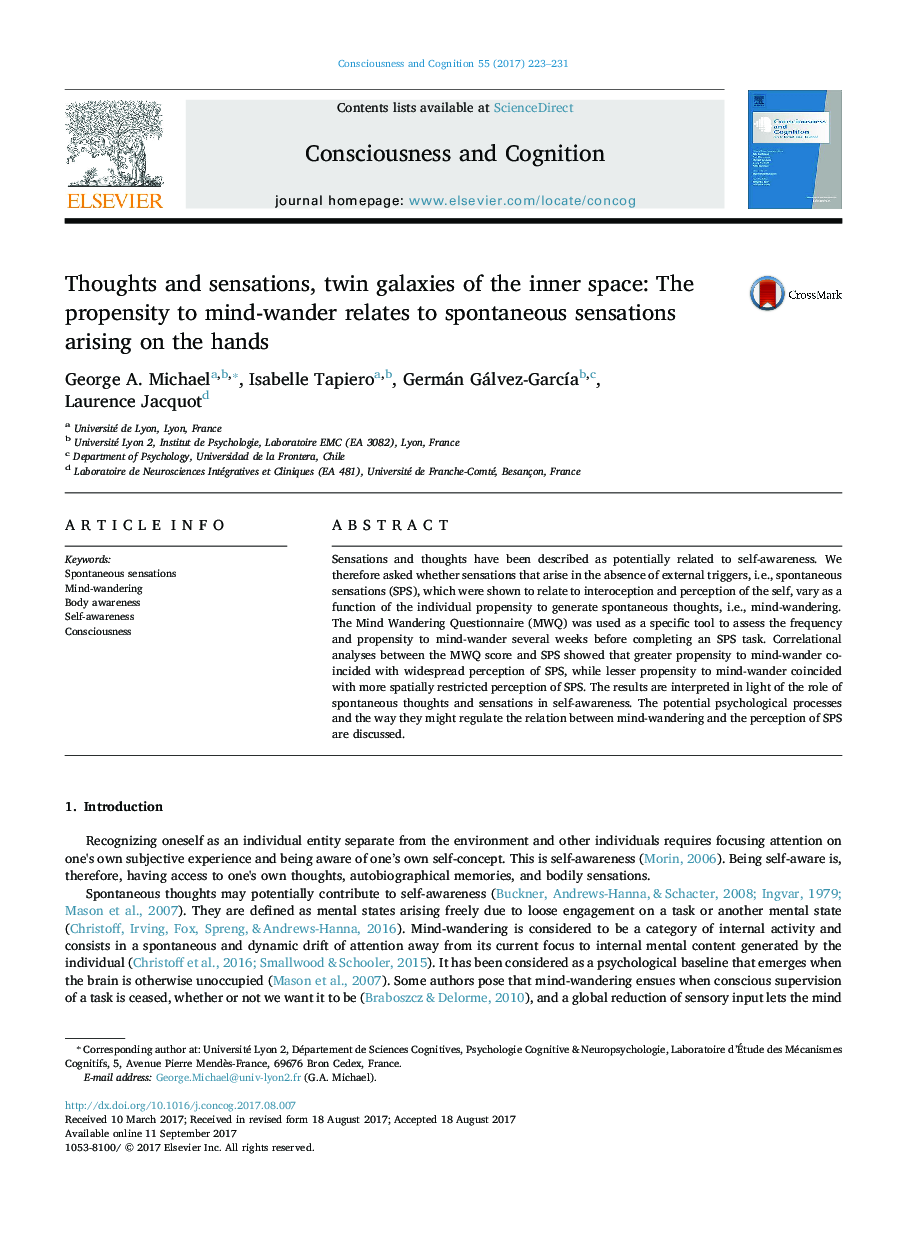| Article ID | Journal | Published Year | Pages | File Type |
|---|---|---|---|---|
| 5041752 | Consciousness and Cognition | 2017 | 9 Pages |
â¢Bodily sensations and spontaneous thoughts may relate to self-awareness.â¢We assessed the relation between the propensity to mind-wander and spontaneous sensations.â¢The propensity to mind-wander was related to the distribution of spontaneous sensations.â¢The potential psychological and neural processes underlying this relation are discussed.
Sensations and thoughts have been described as potentially related to self-awareness. We therefore asked whether sensations that arise in the absence of external triggers, i.e., spontaneous sensations (SPS), which were shown to relate to interoception and perception of the self, vary as a function of the individual propensity to generate spontaneous thoughts, i.e., mind-wandering. The Mind Wandering Questionnaire (MWQ) was used as a specific tool to assess the frequency and propensity to mind-wander several weeks before completing an SPS task. Correlational analyses between the MWQ score and SPS showed that greater propensity to mind-wander coincided with widespread perception of SPS, while lesser propensity to mind-wander coincided with more spatially restricted perception of SPS. The results are interpreted in light of the role of spontaneous thoughts and sensations in self-awareness. The potential psychological processes and the way they might regulate the relation between mind-wandering and the perception of SPS are discussed.
